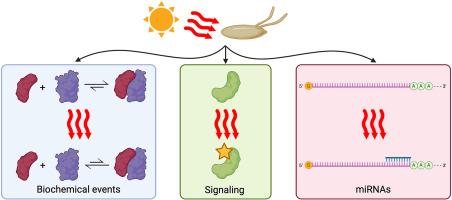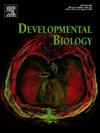Beyond the heat shock pathway: Heat stress responses in Drosophila development
IF 2.5
3区 生物学
Q2 DEVELOPMENTAL BIOLOGY
引用次数: 0
Abstract
Heat stress has broad effects on an organism and is an inevitable part of life. Embryos face a particular challenge when faced with heat stress – the intricate molecular processes that pattern the embryo can all be affected by heat, and the embryo lacks some of the strategies that adults can use to manage or avoid heat stress. We use Drosophila melanogaster as a model, as insects are capable of developing normally under a wide range of temperatures and are exposed to daily temperature swings as they develop. Research has focused on the heat shock pathway and the transcription of heat shock proteins as the main response to heat and heat damage. This review explores embryonic heat responses beyond the heat shock pathway. We examine the effects of heat from a biochemical standpoint, as well as highlighting other mechanisms of heat stress regulation, such as miRNA activity or other signaling pathways. We discuss how different elements of the heat stress response must be coordinated across the embryo to enable development under a wide range of temperatures. Studying heat stress in Drosophila melanogaster can be a powerful lens into how developmental systems ensure robustness to environmental factors.

超越热休克途径:果蝇发育过程中的热应激反应
热应激对生物体有广泛的影响,是生命中不可避免的一部分。胚胎在面对热应激时面临着特殊的挑战--胚胎模式的复杂分子过程都会受到热的影响,而且胚胎缺乏成体可以用来控制或避免热应激的一些策略。我们使用黑腹果蝇作为模型,因为昆虫能够在很宽的温度范围内正常发育,并且在发育过程中每天都会受到温度波动的影响。研究的重点是热休克途径和热休克蛋白的转录,这是对热和热损伤的主要反应。本综述探讨热休克途径之外的胚胎热反应。我们从生化角度研究了热的影响,并着重介绍了热应激的其他调控机制,如 miRNA 活性或其他信号通路。我们讨论了热应激反应的不同要素必须如何在整个胚胎中协调,才能在各种温度下实现发育。研究黑腹果蝇的热应激反应是了解发育系统如何确保对环境因素的稳健性的一个强有力的视角。
本文章由计算机程序翻译,如有差异,请以英文原文为准。
求助全文
约1分钟内获得全文
求助全文
来源期刊

Developmental biology
生物-发育生物学
CiteScore
5.30
自引率
3.70%
发文量
182
审稿时长
1.5 months
期刊介绍:
Developmental Biology (DB) publishes original research on mechanisms of development, differentiation, and growth in animals and plants at the molecular, cellular, genetic and evolutionary levels. Areas of particular emphasis include transcriptional control mechanisms, embryonic patterning, cell-cell interactions, growth factors and signal transduction, and regulatory hierarchies in developing plants and animals.
 求助内容:
求助内容: 应助结果提醒方式:
应助结果提醒方式:


